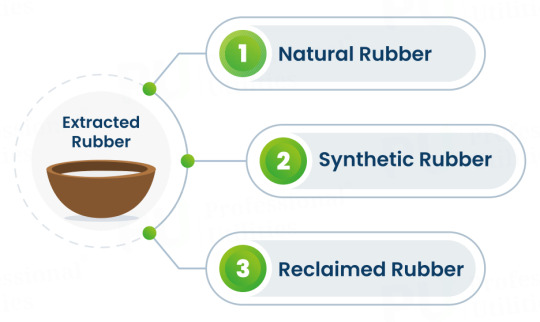#zedscheme
Text
What is the classification of rubber under the rubber board?
The classification of rubber under the rubber board:

Natural rubber: Derived from the sap of rubber trees, primarily Hevea brasiliensis, natural rubber is a versatile polymer utilized in numerous applications. These include manufacturing tires for automobiles, footwear, clothing, and medical devices.
Synthetic rubber: Produced in laboratories using chemicals rather than tree sap, synthetic rubber shares similar properties with natural rubber. However, its production offers control over properties and customization for specific applications, making it prevalent in various industrial uses.
Reclaimed rubber: Also known as recycled rubber, reclaimed rubber is created by grinding and processing scrap rubber and products. Widely employed in industrial manufacturing, it finds applications in products like tires, conveyor belts, and rubber mats.
0 notes
Text
What are the benefits of the ZED certificate scheme under MSME?

The advantages provided to MSMEs are as follows:
ZED MSME units achieving top performance receive awards and recognition from the Department of MSME and Export Promotion. This recognition facilitates international talent promotion within the industry.
It aids in enhancing environmental balance and certifies them as Responsible Manufacturers.
ZED-rated MSMEs gain the opportunity for in-depth study through the ZED Certification Scheme, enabling analysis of global best practices and implementation of such methods within their organization.
The ZED brand stamped on their products enhances consumer confidence and boosts company revenue.
0 notes
Text
Benefits of a ZED certification?
The ZED certification scheme is a voluntary program that encourages MSMEs to implement excellent manufacturing practices. The program includes a rating system that allows MSMEs to compare their manufacturing capabilities to national and international norms. Quality, productivity, innovation, and environmental sustainability are among the ten characteristics that comprise the ranking system.
Advantages of ZED certificate
Market Recognition: ZED certification enhances market visibility, signaling commitment to quality, and fostering customer trust.
Competitive Edge: Businesses gain a competitive advantage by ensuring high-quality products, meeting global standards, and outperforming competitors.
Cost Efficiency: Implementing ZED principles reduces defects and waste, leading to improved operational efficiency and reduced production costs.
Access to Finance: ZED certification can facilitate easier access to finance, as it demonstrates a commitment to quality, minimizing risks for investors and lenders.
Export Opportunities: ZED-certified products are better positioned for international markets, as they comply with stringent quality requirements, opening doors to global trade.
Sustainable Practices: ZED focuses on environmental sustainability, promoting green manufacturing, and minimizing the ecological impact of production processes.
For micro-enterprises: 80% subsidy on the cost of ZED certification.
For small enterprises: 60% subsidy on the cost of ZED certification.
For medium enterprises: 50% subsidy on the cost of ZED certification.
*If you want to know about EPR Registration, BIS Registration, GeM Registration, or APEDA Registration
#ZED certification#QualityWithZED#ZEDCertification#ExcellenceInManufacturing#GlobalQualityStandards#ZEDScheme#ZeroDefectZeroEffect#EnhancingBusinessQuality#ZEDforSMEs#CertifiedExcellence#QualityInnovationZED
0 notes
Text
Fees for ZED certificate
ZED, which stands for ZERO DEFECT ZERO EFFECT SCHEME, is a program for MSMEs that encourages them to use best practices in their operations that improve their sustainability as an organisation. To obtain a ZED certificate MSMEs must pay fees in order to receive the relevant certificates, such as bronze, silver, and gold.
MSMEs may enhance their performance in terms of quality, safety, and the environment by using the ZED certification procedure. It is a priceless asset that may help you increase your marketability.
What is ZED Certification?
(ZED) Certification program is an ongoing initiative to teach MSMEs about Zero Defect Zero Effect (ZED) practices, encourage them to become MSME Champions, and motivate and reward them for doing so. Through the ZED Certification Process, MSMEs may significantly decrease waste, boost productivity, disseminate awareness of environmental concerns, conserve energy, make the best use of the resources at their disposal, gain market share, etc.
The ZED Certification aims to improve an MSMEs competitiveness through evaluation, assistance, management, technical intervention, etc. The ZED Certification is more than just a certification.
*If you want to know about EPR Registration, NGO Darpan Registration, GeM Registration, or APEDA Registration
#ZEDCertificate#ZeroDefectZeroEffect#QualityCertification#ManufacturingExcellence#SustainableProduction#MakeInIndia#QualityStandards#ZEDScheme#IndustryCertification#ProductQuality#ZeroDefectProducts#ExportQuality#ZEDRating#QualityAssurance#ZeroEffectEnvironment#ManufacturingInnovation#CertifiedExcellence#SMEsCertification#QualityFirst
0 notes
Text
ZED Certification: How to get ZED certificate in India
ZED Certification is a substantial drive to create recognition amongst Micro, Small & Medium Enterprises about the Zero Defect Zero Effect (ZED) movement and incentivize them for ZED Certification while also motivating them to become MSME Leader. Zero Defect Zero Effect means that the goods should be manufactured in such a way that they should carry zero defects & they are never returned due to quality parameters, while zero effect means that the manufacturing should support sustainable development & it should have zero negative impact on the environment. Zed Certificate is valid for a period of 3 Years from the date of issuance of certificate.
The ZED Certification aims at strengthening the competitiveness of an organization by guidance, assessment, handholding, managerial, modification, technological intervention and not just certification.
Documents required for Zed Certification
Leadership
Swachh Workplace
Occupational (Workplace) Safety
Quality Management
Certification Requirement (Optional)
Photographs Required
*If you want to know about EPR Registration_ click here
Subsidy in ZED Certification
MSME unit gets subsidy on the cost of certification as per the following structure:
Micro Enterprises: 80%
Small Enterprises: 60%
Medium Enterprises: 50%
#ZEDCertificate#QualityCertification#ManufacturingExcellence#BusinessQuality#ZEDScheme#QualityManagement#IndustryStandards#ISOZEDCertification#QualityInnovation#ZEDCertified#ZeroDefectZeroEffect#ZEDforBusiness
0 notes